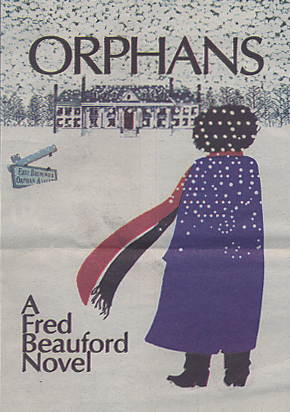Hubert Harrison—The Voice of Harlem Radicalism, 1883-1918
By Jeffrey B. Perry, Columbia University Press,
New York, 2009 ISBN: 978-0-231-13910-6
Review by Herb Boyd
Given the time in which he lived, his color, coming to America at seventeen, practically devoting his life to radical politics, and dying at a relatively early age, it’s a miracle that we know anything at all about Hubert Henry Harrison. But Harrison’s incomparable intellect, uncompromising integrity, and the influence he had on the thinkers of his day is gradually emerging from the shadows of obscurity, thanks largely to the yeoman and independent working class scholarship of Jeffrey B. Perry.
Of all the astonishing achievements of Harrison, dubbed a “walking encyclopedia,” there is one in particular that Perry notes, and which should stand as a testament to Harrison’s impact on the ages. “Harrison is the key link in the ideological unity of the two great trends of the Black Liberation Movement—the labor and civil rights trend associated with Martin Luther King, Jr., and the race and nationalist trend associated with Malcolm X,” Perry observes in the introduction to Hubert Harrison—The Voice of Harlem Radicalism, 1883-1918.
This linkage alone to two of America’s most gifted intellectuals would have been enough to commend Harrison, but there is so much more in Perry’s engrossing study of this neglected activist, theoretician, and orator that even after four hundred pages and some two hundred pages of notes, you hunger for more about a man who would dare to challenge the gargantuan wisdom and reputation of W.E.B. Du Bois.
Du Bois, Harrison contended, was a failure as a leader. At the core of Harrison’s angst for Du Bois was his “Close Ranks” editorial in the 1918 Crisis. Perry provides fresh insight on the editorial in which Du Bois asked that black Americans “forget our special grievances” and “close ranks shoulder to shoulder with our white fellow citizens” to fight fascism and to make the world safe for democracy. Harrison took exception to what he deemed an “accommodationist” position, and explained that the move was one of self-interest since Du Bois was seeking a captaincy in the Military Intelligence branch of the Army.
Such a stance infuriated the highly principled Harrison, and as Perry further elucidates Harrison chastised Du Bois in the same way Du Bois had assailed Booker T. Washington in his collection of essays, The Souls of Black Folk.
It may also be said that Harrison was foreshadowing the battle Marcus Garvey had waged with Du Bois. And this would certainly make sense given Harrison’s association with Garvey, and here again Perry discloses another revelation. Garvey had hardly settled in Harlem in 1917 when he was introduced by Harrison at the first meeting of the Liberty League, the organization he founded. Subsequently, Garvey joined the League and inspired by Harrison’s oratory skills, decided to remain in the United States.
We also learn that long before Drs. Kenneth and Mamie Clark devised their doll test that was so instrumental in Brown v. Board of Education, Harrison’s profound race consciousness had by the turn of the last century already realized the psychological, as well as the business, impact in the production of black and white dolls on black children.
Harrison can be credited too with helping to lay the ground work for the Harlem Renaissance of the 1920s. Almost a decade before Alain Locke and his cohorts began promoting the notion of the New Negro, Harrison had advanced this breakthrough time and time again in his essays and from the street corners of Harlem.
Anyone interested in the history of Harlem will find an inexhaustible supply of information in Perry’s chapter “Focus on Harlem.” But it’s hard to single out any one chapter since Harrison’s life was inseparably attached to Harlem where his forums, his paper The Voice, his charisma and his redoubtable socialism made him one of the most compelling men of his times.
Indeed, during those days when he walked the streets of Harlem, or any other part of the city, he was widely acknowledged for his vast storehouse of facts and information, and now through Perry’s prodigious research Harrison’s brilliance can once more engage a generation eager to find inspiration and renewed political spirit.
As the pundits bandy about the possibility we may be living in a post-racial society given the ascendancy of Barack Obama, Perry’s study of Harrison’s life and the redemption of his legacy is never more pertinent than when he writes: “Hubert Harrison understood white supremacy to be central to capitalist rule in the United States.”
Add prophecy to Harrison’s impressive resume.

